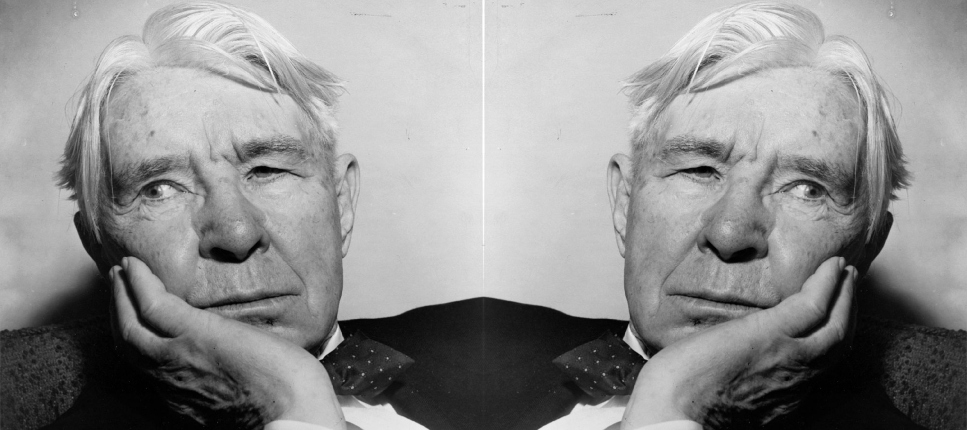Lit Hub Weekly: July 17-21, 2023
THE BEST OF THE LITERARY INTERNET

- Twenty years after Roberto Bolaño’s death, Aaron Shulman unpacks the extraordinary literary afterlife of the Chilean poet and novelist. | Lit Hub Criticism
- “Once I can’t rely on sight to write anymore, will I, like Borges, no longer be quite sure who is writing this page?” Andrew Leland on Jorge Luis Borges’ blindness and his own. | Lit Hub Memoir
- Alfred J. Naddaff spends 72 hours in Zurich with Khaled Khalifa, chronicler of modern Syria: “One wish has remained the most salient: his desire to return home, which he describes to me as a sort of sickness.” | Lit Hub Politics
- “Overly sanitized stories mostly risk being forgettable.” For Janet Manley, grown-ups so very often miss the point of children’s books. | Lit Hub Criticism
- Surprise! Ta-Nehisi Coates showed up at a school board meeting in South Carolina over banning his book. | The Daily Beast
- Take a peek at the writing spaces of Richard Wright, Tennessee Williams, and more. | The New York Times
- Rebecca Ackermann considers the rise of “tech worker fiction.” | Esquire
- Stassa Edwards on Lewis Carroll and “the confluence between the literary Alice and the Alice who stood before Carroll’s camera.” | Lapham’s Quarterly
- “In one important time in history, monster also meant creative, experimental, and ever-changing.” Andrew Mangham explores how science and literature illuminated body difference in the 19th century. | The MIT Press Reader
- Jeet Heer looks at the history of Young Americans for Freedom, “a lawsuit-happy right-wing student group that has been a shaping force on the right for more than six decades.” | The Nation
- On the puzzling, increasingly rightward turn of Mario Vargas Llosa. | The New Yorker
- “Zilahy can murder a sacred cow and canonize an unknown victim of totalitarianism in a single sentence.” Marina Abramović on Péter Zilahy. | The Paris Review
- “What does CVS stand for? No one seems to know. Everything you might want to buy there is now locked up, and you have to press what feels like a panic button to get access.” Rachel Kushner on the designed world. | Harper’s
- “Anything you create that transcends time is in some ways more real than the actual reality of your life.” David Marchese interviews Joyce Carol Oates. | The New York Times Magazine
- Tyler Foggatt considers the dueling memoirs of Caroline Calloway and Natalie Beach. | The New Yorker
- Layoffs and buyouts have hit Penguin Random House. | The New York Times
- “When the water arrives, it will knock out one of the densest metropolises in the world. In 1910, 150,000 people in Paris were affected, some 200,000 more in the suburbs.” Madeleine Schwartz asks, can anyone stop Paris from drowning? | The Dial
- Here are the books Barack Obama is reading this summer. | The Hill
Also on Lit Hub:
Colson Whitehead talks Blaxploitation cinema, Sidney Lumet, and the latest installment of his Harlem trilogy • For Janet Manley, grown-ups so very often miss the point of children’s books • Well before Christopher Nolan’s Oppenheimer, we nearly got an atomic bomb movie from… Ayn Rand • Lawrence Sutin on transforming books through erasure and collage • How familiarity influences our decisions • On the science of starling murmurations • A miraculous display of puffins on the Skellig Islands • How embracing destruction can make our writing better • Considering the life and work of Charles Causley, one of the most important British poets of the 20th century • Animals don’t know what we call them, but language affects how we think about them • Exploring the “colorful and gruesome backstory” of C-sections • Why expertise has lost its luster • New poetry from Terrance Hayes • Colin Dickey investigates the pernicious influence of David “Lizard People” Icke on the 2020 Nashville Bomber • Mikki Kendall remembers the indelible work and full complexity of bell hooks • Ann Magnuson on her friend Keith Haring the poet • Michael R. Kratz outlines the unique challenges of translating The Brothers Karamazov into English



















